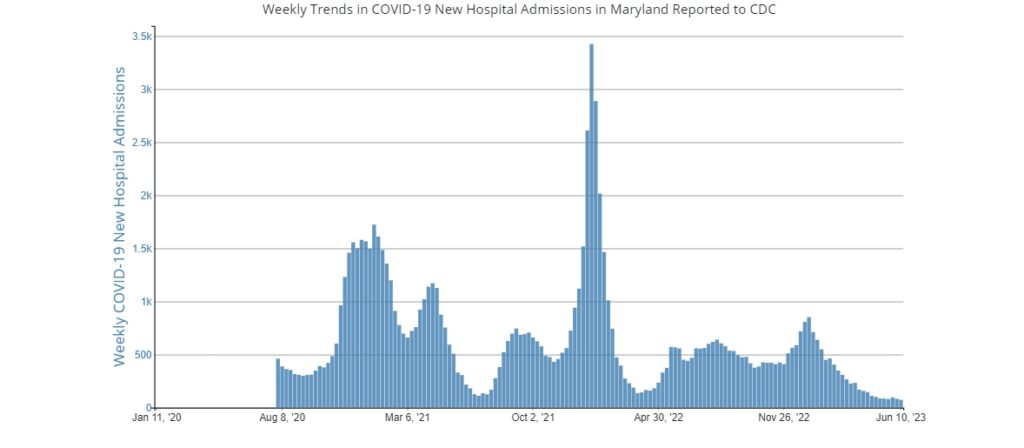It has been a while since the News Review published an article on Covid-19. For most people, it feels like the emergency is over – and that’s true to some extent. In fact, death data for the U.S. in recent weeks show the lowest number of Covid-related deaths, 203, since data began to be kept in March 2020. This follows a precipitous decline in hospitalizations and deaths in the last few months after a small uptick in the first months of 2023. The last time the weekly mortality count nationally was below 200 was March 14, 2020, when it hit 60 on the way up – by the following week the toll had risen to 586 and was headed north at a gallop.
The highest U.S. death count of the pandemic was in the week of January 9, 2021, at 25,974. Dark days indeed.
Johns Hopkins discontinued its tracking of worldwide data in March of this year. The count at that time is frozen like a memorial on their website. Worldwide, 676,609,955 cases and 6,811,955 deaths – and that is almost certainly an underestimate. Local weekly data by ZIP Code is no longer available on the Maryland and Prince George’s County websites.
Echoes Remain
Despite the decline in cases, repercussions continue to reverberate. School-age children took a big hit – rates of truancy remain high with older students and test scores are still lagging. The isolation of small children prevented their exposure to normal infections when they should have experienced them, and now some have life-threatening consequences as these infections take a more drastic course than they would have if contracted earlier. Long Covid continues to deplete its victims. Shopping online burgeons and stores disappear. Commercial office rentals continue to have high vacancy rates as workers cling to telecommuting.
One imagines that, like the Spanish Flu epidemic of 1918, the echoes of Covid will reverberate perhaps for decades.
The CDC’s message remains strong that vaccines offer protection from the virus – and especially so for older Americans. The more doses and the more recently they were received the better.
Is it Over?
Just like the flu isn’t over, so Covid isn’t and likely won’t ever be – it still seems to pick up in winter and subside in summer. But it has perhaps joined the list of “usual suspects,” the endemic diseases to which humankind is subject. The answer’s probably the same as it is for flu, especially for those vulnerable by virtue of age or underlying conditions: an annual booster. Look for upcoming vaccines perhaps this fall that tackle both flu and Covid.
Data are drawn from the Centers for Disease Control and Prevention, covid.cdc.gov/covid-data-tracker/#datatracker-home.




